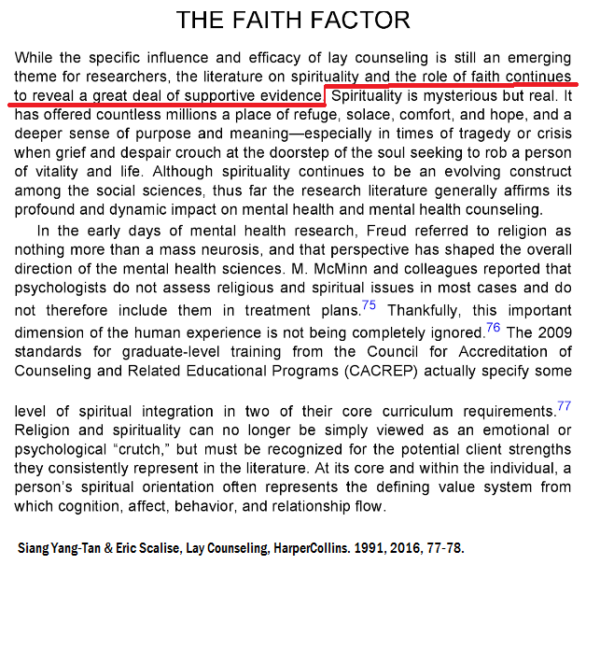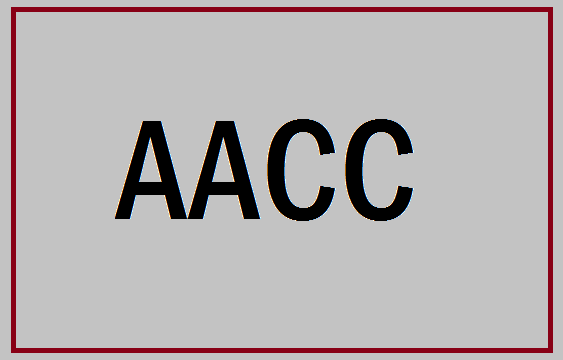Courtesy of Aaron New, here is another attribution problem at AACC. This article “The Case for Faith: Celebrating Hope in Mental Health Care” posted by “Emily” with authorship attributed to Eric Scalise and Tim Clinton in January of this year is mostly lifted from a book by Siang-Yang Tan and Eric Scalise titled Lay Counseling: Equipping Christians for a Helping Ministry.
Here is just a little bit of the article. The words in italics are taken directly from Tan’s and Scalise’s book. Someone took the article, added a few sentences, put Clinton’s name on it and posted i.
Spirituality is mysterious, but real. It has offered countless millions a place of refuge, solace, comfort, hope and a deeper sense of purpose and meaning—especially in times of tragedy or crisis where grief and despair crouch at the doorstep of the soul seeking to rob a person of vitality and life. Although spirituality continues to be an evolving construct among the social sciences, thus far, the research literature generally affirms its profound and dynamic impact on mental health and mental health counseling. Why is it then—in a multicultural and postmodern society—that some practitioners and counselor educators continue to avoid or even disparage this potential client strength when it comes to treatment planning and desired therapeutic outcomes?
Some may remember that in the early days of mental health research, Freud referred to religion as nothing more than a mass neurosis. McMinn et al (2009) report that psychologists do not assess religious and spiritual issues in most cases and do not therefore include them in treatment plans. Thankfully, this important dimension of the human experience is not being completely ignored (Briggs & Rayle, 2005; Young et al, 2007). Dobmeier and Reiner (2012) note that the 2009 standards from the Council for Accreditation of Counseling and related Educational Programs (CACREP) specify some level of spiritualty integration in two of their core curriculum requirements. Religion and spirituality can no longer be simply viewed as an emotional or psychological “crutch,” but for the potential client strengths they consistently represent in the literature.
Now here is the relevant section of the Lay Counseling book.

If you read along in the article and the book, you will find that most of the article is taken from the book with minor alterations. There is a section on ethics codes from ACA and APA which I can’t find in the book. Nothing on the AACC website page says the article is excerpted from the Lay Counseling book.
In any case, here we have a case where Tim Clinton’s name appears on an article when there is no connection in the source document. I don’t know Dr. Tan, but have heard he is pretty nice fellow. Lay counseling has been Dr. Tan’s life work. My guess is he won’t do much about this but it is a pretty shabby way to treat a long time supporter.
PS – If you are reading this and have ever donated to the AACC Foundation, please contact me.

https://uploads.disquscdn.com/images/9ac108e6000154accae6f46b7ec6fd995a43f6b0b58308915c0979aac7a0fbe2.png